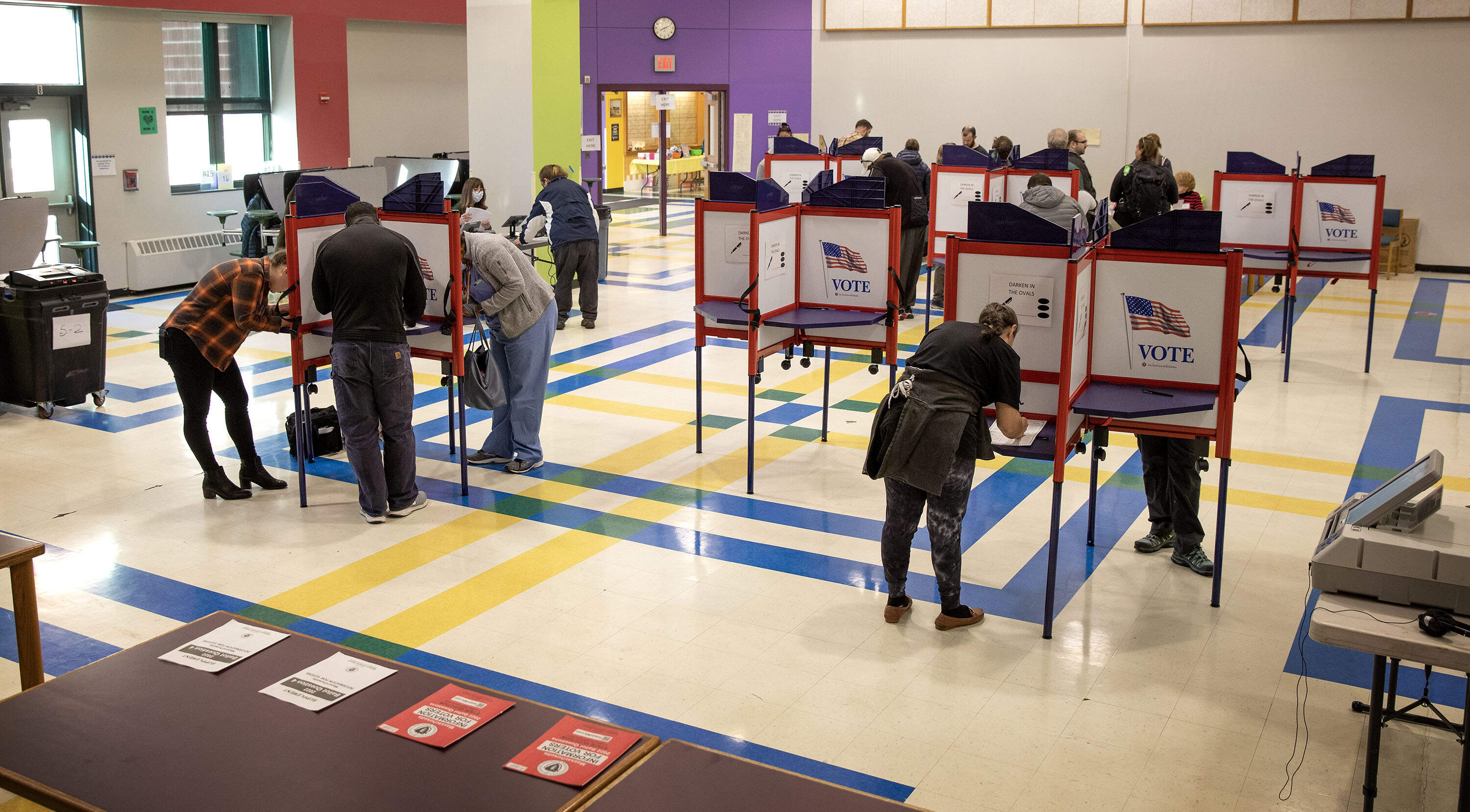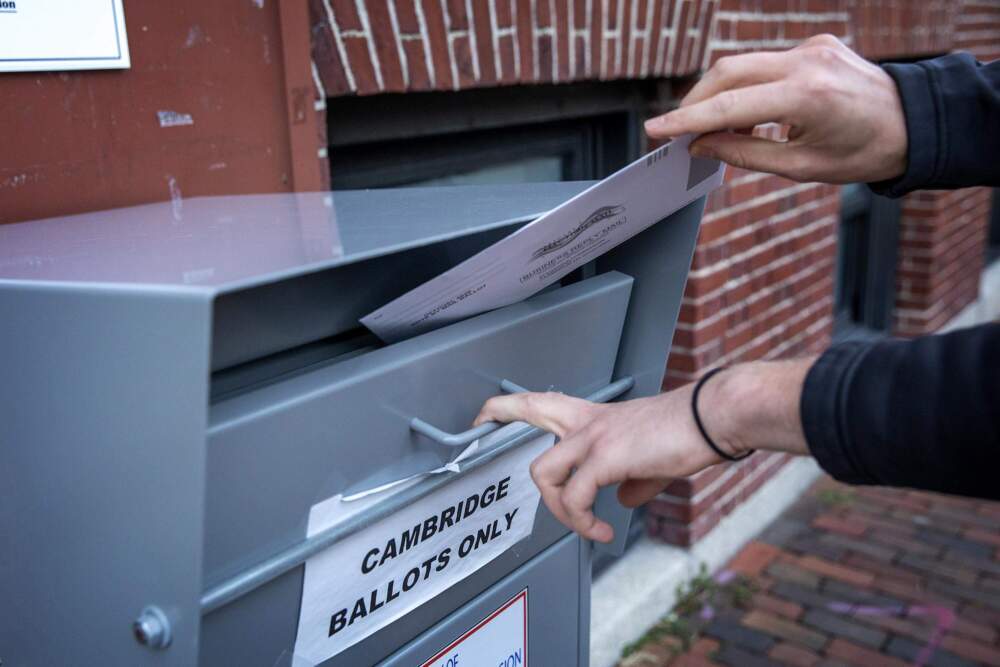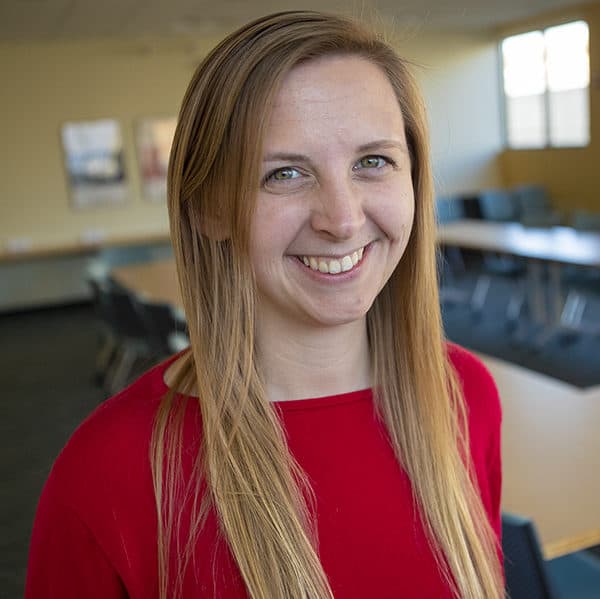Advertisement
Field Guide to Boston
Massachusetts voter guide: Your 2024 state primary breakdown

Massachusetts’ state primary is set for Tuesday, Sept. 3. It kicks into higher gear an election season that didn't take much of a vacation this summer.
While the buzz around the 2024 presidential race has been deafening as of late, this year's state primary is quieter than in recent years.
Gov. Maura Healey and other statewide constitutional officers won't appear on the ballot until 2026. And though every member of Congress representing the state — except U.S. Sen. Ed Markey — is up for re-election, all are running unopposed in their Democratic primaries.
There is, however, a three-way Republican primary to decide who will take on U.S. Sen. Elizabeth Warren, as well as a GOP race in the 8th Congressional District vying to grab the seat held by U.S. Rep. Stephen Lynch come November.
Other than Warren and Lynch, only U.S. Rep. Bill Keating is set to compete against a Republican rival in the general election. But in deep blue Massachusetts, any GOP challenger will have to convince enough voters to swim against the tide.
Down your primary ballot, you'll find races from the Governor's Council to the State House — and an unusually competitive race for a Boston-area clerk's office.
If you're checking your calendar wondering when to run to your polling place, yes, Sept. 3 is the day after Labor Day.
Don't ruin your long weekend and lose your chill summer vibes to a frantic, last-minute search for election details. Instead, here's all you need to know now about your voting options and who's on the ballot.
Register to vote:
First things first: In Massachusetts, you have to be registered to vote in the primary by Aug. 24 by 11:59 p.m.
Check your voter registration status here.
If you are not registered, click here for instructions to register online, by mail or in person.
3 ways to vote
Vote by mail:
If you want to vote by mail, keep these deadlines in mind.
- You must apply to vote by mail before Aug. 26 at 5 p.m.
- And your completed ballot must be received by Sept. 3 at 8 p.m.
Apply for your mail-in ballot
You might have already received a paper application the state is required to mail all registered voters. Fill that out, and mail it back.
It’s a good idea to apply as early as possible to allow for any mail delays. The state recommends at least two to three weeks before Election Day (so no later than Aug. 20). Or, apply online through this portal. You also could email or fax your application, but you must include a signature that compares to your hand-written signature (that means no typed signatures).
Cast your ballot
After filling out your ballot and signing it, you can mail it, hand-deliver to your local election office, drop it off at an early voting location or drop it in a ballot drop box. (Here are the locations of local election offices and ballot drop boxes across the state.) Please note, you cannot submit a mail-in ballot by bring it to your polling location on Election Day.
Ballots must be at your local election office or in a drop box by the close of polls on Election Day (8 p.m. on Sept. 3).
Check the state's Track My Ballot tool to ensure the state received your vote and that it was accepted. If you didn't mail it in time, or there was an issue and your ballot was rejected, you can still head to your polling location on Election Day to cast your vote. (If your mail-in ballot reaches your local election office after you vote in person, the mail-in ballot will be rejected, and your vote will only count once.)

Vote early, in person
Early voting for the state's primary runs from Aug. 24 to Aug. 30. Each municipality has its own hours and dates within that time period, so check with your local election office for details. Unlike Election Day, you can vote at any early voting location in your town or city.
Vote on Election Day
On Sept. 3, the primary's official Election Day, polling hours run from 7 a.m. to 8 p.m., however some polling locations may open earlier. Find your polling place here.
What races are on the ballot?
- U.S. senator: Software engineer Robert Antonellis, Quincy City Councilor Ian Cain and cryptocurrency attorney John Deaton will battle for the Republican nomination to face off against Warren in the general election. Warren, the state's senior U.S. senator, is seeking her third term.
- U.S. representative: A race in District 8 is this primary's only contested U.S. House election. Republicans Robert Burke, James Govatsos and Daniel Kelly are competing to challenge Lynch in the general election.
- Governor’s councilor: Districts 2, 3 and 4 feature contested Democratic primaries. See candidates here. There are no contested Republican races.
- State senator: This year, there are three open state Senate seats, as well as three incumbents looking to bat back challengers their party primaries. Otherwise, the majority of state senators will slide to re-election unopposed, with the slim number of competitive contests largely happening in the general election. Find out who is running across the state here, or see who is on your primary ballot here.
- State representative: Only 15 state representatives are facing a primary challenger, and there are 16 open seats. Check who is running across the state here, or see who is on your ballot here.
- Register of deeds: This official, who serves a six-year term, is tasked with maintaining land records in your county. See who is on your ballot here.
- Clerk of courts: This official also serves a six-year term and is responsible for maintaining court proceedings. The race is more competitive than usual this year. Check to see who is on your ballot here.
- County commissioner: This role varies county to county, but is essentially responsible for for managing county-wide services or maintaining county infrastructure like courthouses. See if there's a contest in your county by viewing your ballot here.
